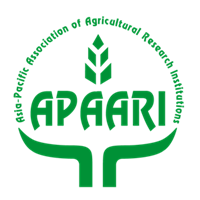Water Resource Research and Education in Mountain Communities
High elevation páramo (wetland) ecosystems in the Andes are important water sources for local communities and downstream agricultural and urban users. These headwater catchments, however, are often impacted by human activities (eg agricultural production) that affect both stream water quality and flow. Knowledge about water availability, quality, and use is essential for effective management but is often lacking, particularly in smaller mountain communities. Studies of natural resources in mountains, conducted jointly with local actors and with the participation of youth, are a way for rural communities to learn about their resources, appropriate this knowledge, and improve their quality of life. Research projects that involve youth in remote rural zones, where education is not of the same quality as in urban centers, represent an important opportunity for youth to acquire skills and relevant knowledge for their personal development and for participation in development processes. The present article presents a process and the results of a project that studied water resources in Bolivia and Colombia with local youth and water users. The research themes in the 2 countries were different, responding to the concerns of their respective communities, but the results had a similar major impact on the lives of young researchers, on the communities' perception of the state of their natural resources—in particular water—and on the role of knowledge in generating creative options for improving resource management and the quality of life in mountain communities.
Related Resources
Towards optimal coordination of the Chilean Agricultural Innovation System: Design for a MINAGRI Agricultural Innovation Coordination Unit
This is a study for developing long-term strategy for Chilean Innovation System
Agricultural Innovation in Latin America and the Caribbean: Institutional Scenarios and Mechanisms
Agriculture and food supply face a repositioning in the context of challenges associated with the Millennium Development Goals. From a development perspective it is of central importance to identify the role that the sector should perform in the fight against...

Report on Prioritization of Demand-driven Agricultural Research for Development in Bangladesh
International Food Policy Research Institute (IFPRI) partnered with the Asia-Pacific Association of Agricultural Research Institutions (APAARI) in 2011 to conduct a series of policy dialogues on the prioritization of demand-driven agricultural research for development in South Asia. Dialogues were conducted...
Scientists, Industry and Farmers Marketing Sorghun in Andhra Pradesh
The Andhra Pradesh sorghum coalition illustrates the valued added by working in coalition. By combining different perspectives to give rise to new, synthesised ideas, the member organisations worked at a faster pace and achieved their objectives more successfully and sustainably...


